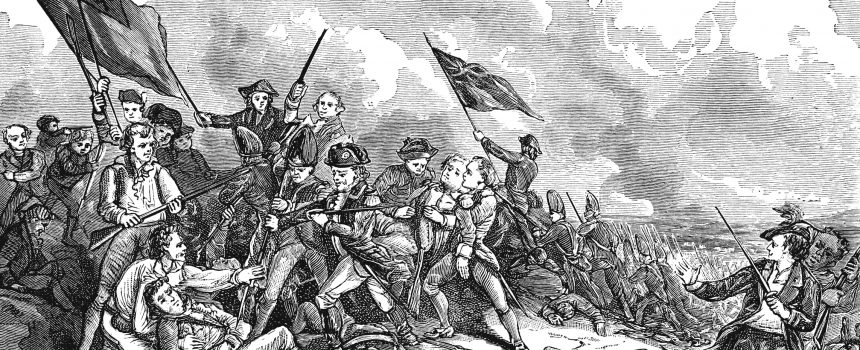Continuing our series on the comparison between the American War of Independence and today’s world of sales and commerce, in this post we’re going to have a look at what was probably at the heart of the American Revolution: freedom and liberty.
“Freedom” in the Colonies
First, let’s have a quick examination of what America looked like just after the revolution, right around 1783. The population was only about 4 million in the just-birthed United States of America. Only about 10 percent of this number lived in its 4 major cities: Philadelphia, Boston, New York, and Charleston. The remainder, and the far majority, lived in rural areas and comprised small communities.
Today the word freedom has a different connotation than it did at the time of the revolution. There was a term common at that time: “public good.” Public good meant the greater good of the community, in these little communities where most people lived.
Individual versus Community Freedom
Why were the colonists fighting the Redcoats? They wanted freedom; they no longer wanted some far-away king ruling them. But it wasn’t the individual that wanted freedom so much as they wanted freedom for their communities–for the “public good.” And of course they wanted freedom for their states, and then the colonies as a whole.
Here is where a different connotation for the word “freedom” shows up. If you simply ask someone on the street today what “freedom” means, they’ll say, “It means I can do whatever I want, whenever I want, and no one will ever tell me what to do.” That isn’t what the word meant back in 1783. It actually had a similar definition as another word used quite a lot back then: “liberty.” It was a freedom for communities to live and thrive. This of course meant that freedom had its companion, responsibility (to others, to the community) without which freedom cannot truly exist.
Interestingly, we can see that in a similar way to “freedom,” the definition of the American Dream has also gone through a radical shift. Today it means to most people, “I get rich and rise above everyone else.” Looking at it through the colonist lens, we can see that it, too, had a group connotation as opposed to an individual one.
As a side note, we must also realize that “freedom” would have meant something else to the colonists, for their thinking was heavily influenced by religion, especially Calvinism. Calvinism taught, “We are not our own. We are God’s.” So they didn’t think first of their own individual freedom.
So we can see that there is quite a difference between freedom as a right (“freedom to…” as dictated by our Constitution) and freedom as license to “do whatever I want.”
Translation to Sales
This same mix-up of meanings can also occur in sales. Many become salespeople because of the lure of freedom: freedom from being tied to a desk, freedom to control your own income, and a relative freedom to make your own decisions. But we can see that in this context, just as in the context of the colonists, freedom does not mean being able to do whatever one wants, whenever one wants. It’s a freedom for the company (like the “community” in the colonists’ example) to succeed and to thrive. And just as the individual colonist did, the salesperson has a responsibility to the company–a salesperson’s “community.”
The sales manager helps steer a salesperson’s freedom in the community, so that the salesperson is progressing for the “greater public good.” And what is the “public good” for a company? It is growing revenue for the purpose of the company, continually establishing it to serve the customers.
Here we come back to management philosopher Fredmund Malik, who tells us that the “public good” for a company is the value of its customers, not shareholder value. Out of the customer value a company is generating real revenue and, at the end, profit.
Not Without a Struggle
No freedom nor liberty comes about without a fight. The United States of America did not come about without a war, a series of hard battles. Anyone seeking to establish a sales team or a company is likewise not going to do so without a struggle. Just as Great Britain was fighting to keep the colonists from having their own country, you’re going to have competitors working hard to keep you from establishing a foothold in your industry, from making a name for your product or service, and creating customer value.
In fact I have previously made a strong case that building a sales team is much like creating battle-ready troops. Check out my ebook Leading from the War Room: Building a Battle-Ready Sales Force.
Principles In Our Product
Interestingly, our product Pipeliner CRM was based on these principles. Certainly a salesperson can use the product by himself or herself, but that is not why it was built. It is produced with the group, the sales team, as its foundation. All of its features–the pipeline view, profiles, reports, and performance insights just to name a few–were designed with a team and sharing firmly in mind.
Pipeliner also differs from traditional CRM applications in that it isn’t designed so that managers see data that salespeople cannot see. It is totally transparent–the data seen at the top is the same data as seen on a salesperson level.
Pipeliner can be seen as an iceberg, where the obvious features are above water, but the principles (the major part of the iceberg) is underwater, not seen, but are most important. Freedom is one of those principles. Find out more in the ebook Facing Forward: Today’s Sales Mindset.
Pipeliner is sharing, and for learning to live in prosperity and freedom for the community. For a salesperson this means continually creating that customer value.





















Comments